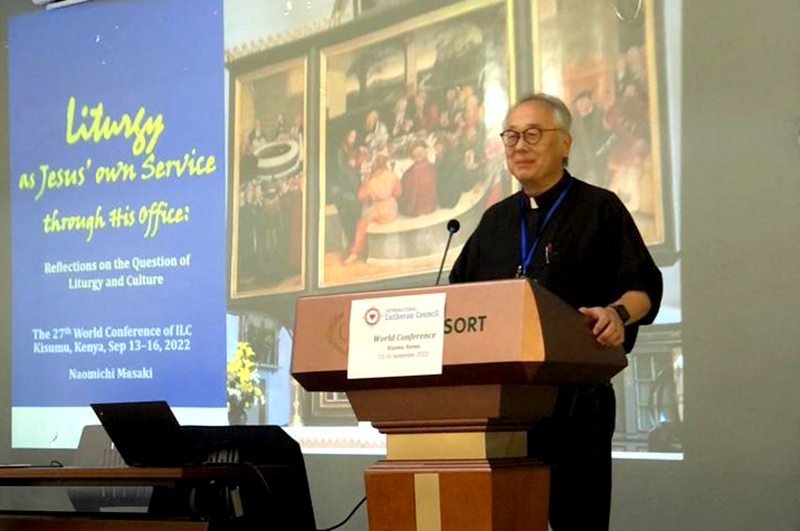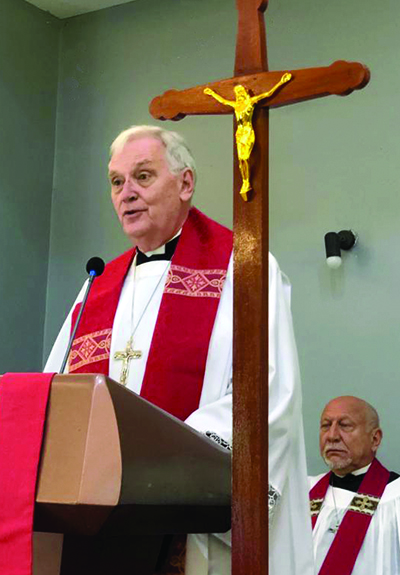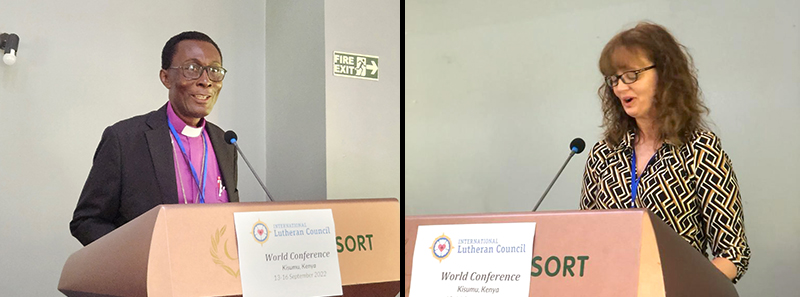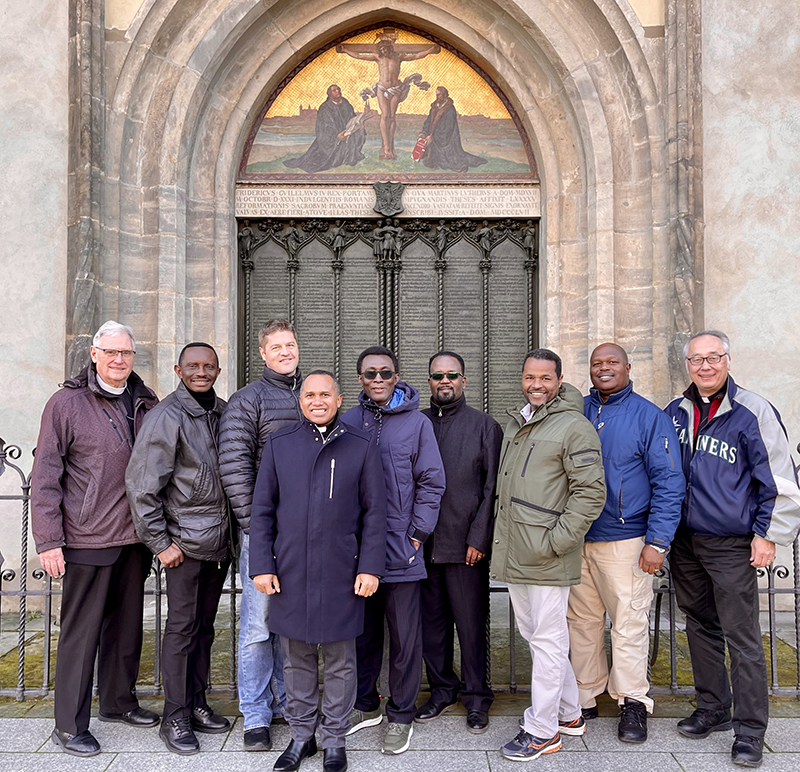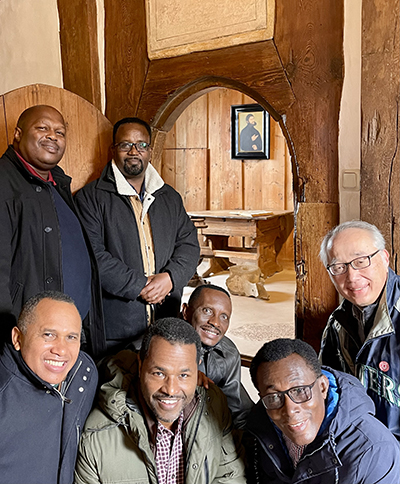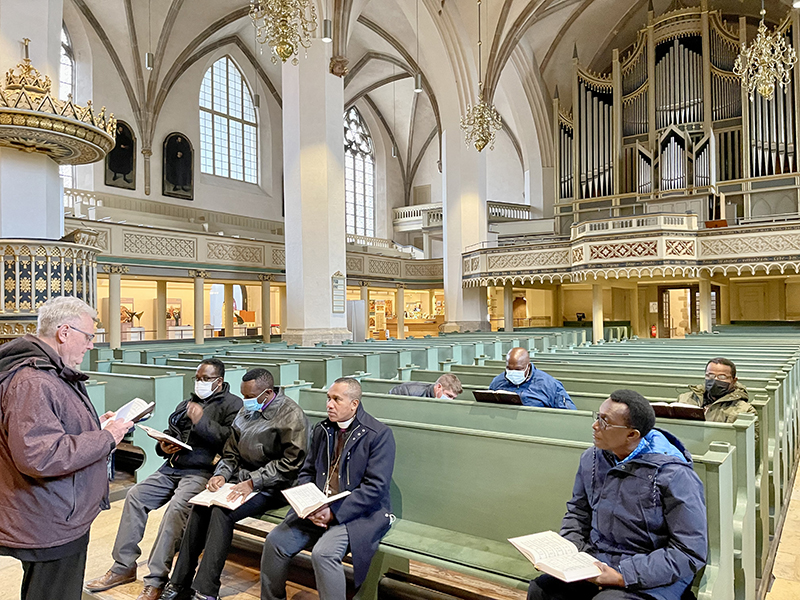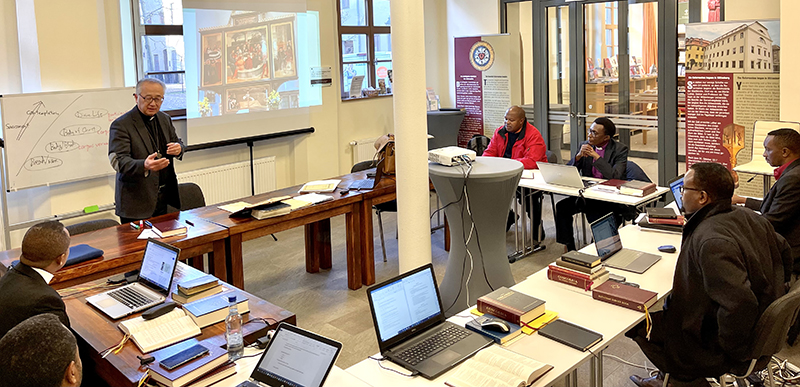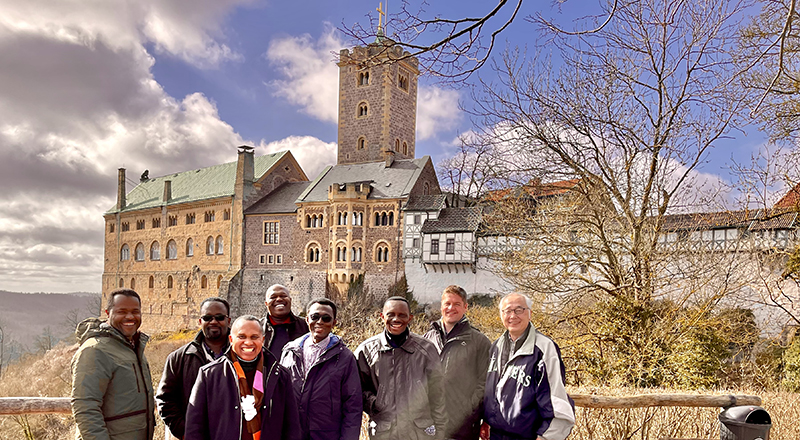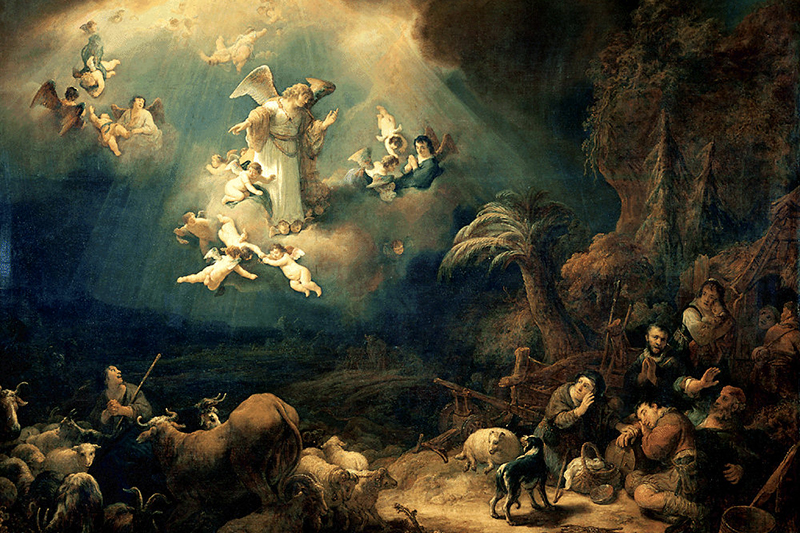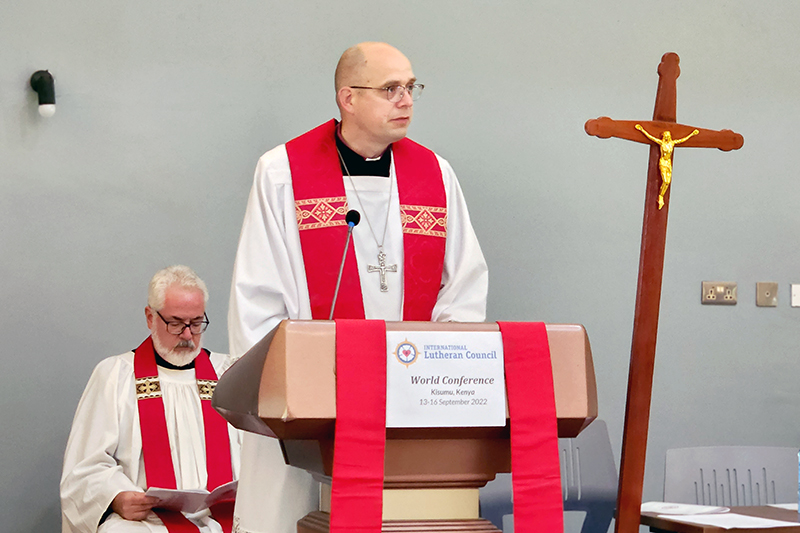
KENYA – The final morning of the International Lutheran Council’s (ILC) 2022 World Conference saw the adoption of a Statement on Liturgy and Culture, as well as a unanimous decision to produce a statement rejecting virtual communion.
The first session of the day began with a service of matins. Rev. Roger James, the ILC’s Assistant to the General Secretary, served as liturgist, while incoming Bishop Juhana Pohjola, incoming ILC chairman, preached. Bishop Pohjola’s sermon focused on John 10:11-16, noting the commemoration of St. Cyprian.
After matins, Rev. Dr. Alexey Streltsov, Rector of Lutheran Theological Seminary in Novosibirsk, Russia, presented the final paper of the conference: “Lord, to Whom Shall We Go? The Revision of Liturgical Space and Time in a ‘Virtual Worship’ Era.”
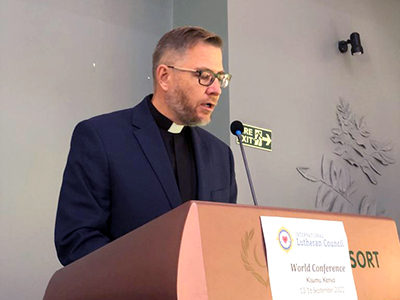
“My proposition is that there is a discrepancy between our subscription to the Scriptures and the Lutheran Confessions and reliance on the virtual format for conducting worship services (especially ones containing the Lord’s Supper),” Dr. Streltsov said during his lecture. And, while he recognized that, during the pandemic, many Lutheran churches around the world relied on online technology to reach members, Dr. Streltsov warned that allowing “virtual worship” to become part of the norm is a decision “pregnant with philosophical and theological dimensions.”
“Our traditional Lutheran liturgy emphasizes the real presence of Jesus in the Word and Sacraments made available to us in a concrete, earthly setting,” he noted. “An alternative understanding of worship would centre rather on perceived personal spiritual and emotional comfort of the worshipper, on the sense of self-fulfillment, self-realization on behalf of the worshipper…. My thesis is that these two different understandings of worship are incommensurable.”
A spirited discussion on the subject of virtual worship followed the presentation.
Report on Liturgy and Culture
Following a break, the conference considered a summary statement on Liturgy and Culture, which distills key points from the presentations and subsequent discussions. This summary was adopted by common consent. Key passages include:
- “The Church fundamentally is the gathering of people around the Lord of the Church to encounter him, hear him, receive him, and be blessed by him for another week ‘out in the world’. The liturgy involves words and actions by which, through the power of the Holy Spirit, Jesus is present to the glory of the Father.”
“Conscious that the Word of God constitutes and our Confessions shape our worship, the Church balances the truth of Jesus’ presence with his people and clearly speaking the Word of God to the world. This is particularly pertinent in liturgical reviews and the production of new rites, new hymnals, and changes to permissive rubrics. The Church has the responsibility to communicate clearly Jesus and not sacrifice Jesus in the process! The Church’s catholicity must be maintained against the deceptions of the new.”
“As language and identity are increasingly fluid today; as the Church is increasingly aware that the world is always opposed to the God who loves her; as God’s Word sadly is always challenged by others who also say ‘Thus says the Lord’ so the Church can ‘sail such storms’ when the liturgy is faithful to the Lord of the Church who desires all people to be saved and to come to the knowledge of the truth. In the liturgy, Jesus draws all people to himself so that they can live life in all its fulness—because an embodied God comes to embodied humanity with embodied grace creating an embodied community and witness—no matter when or where people are found.”
The full summary will be released online in the days to come.
Virtual Communion
Later in the day, the world conference also approved a procedure for the publication of a statement rejecting virtual communion as contrary to Scripture and the Lutheran Confessions.
A proposed text was unanimously accepted in principal, with additional direction given to the board to prepare a final version for release in mid-December 2022.
———————

